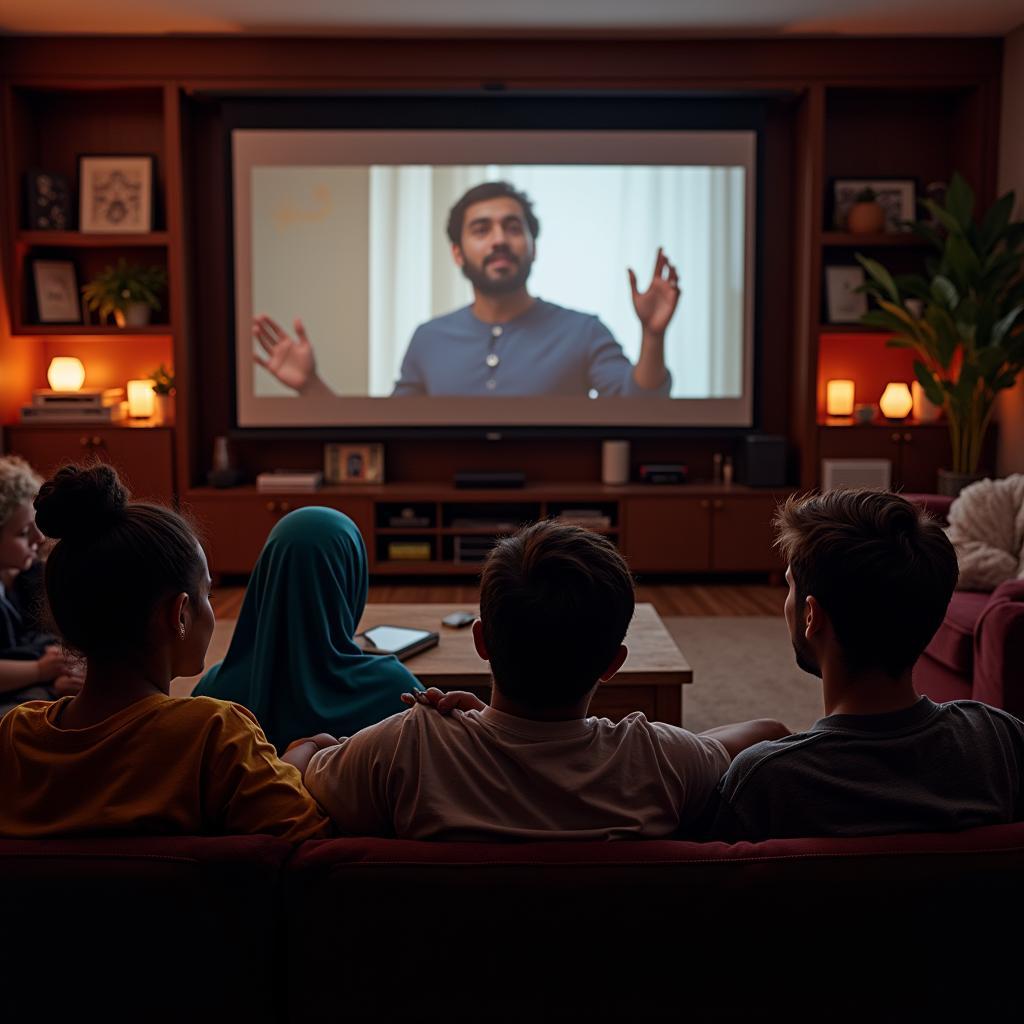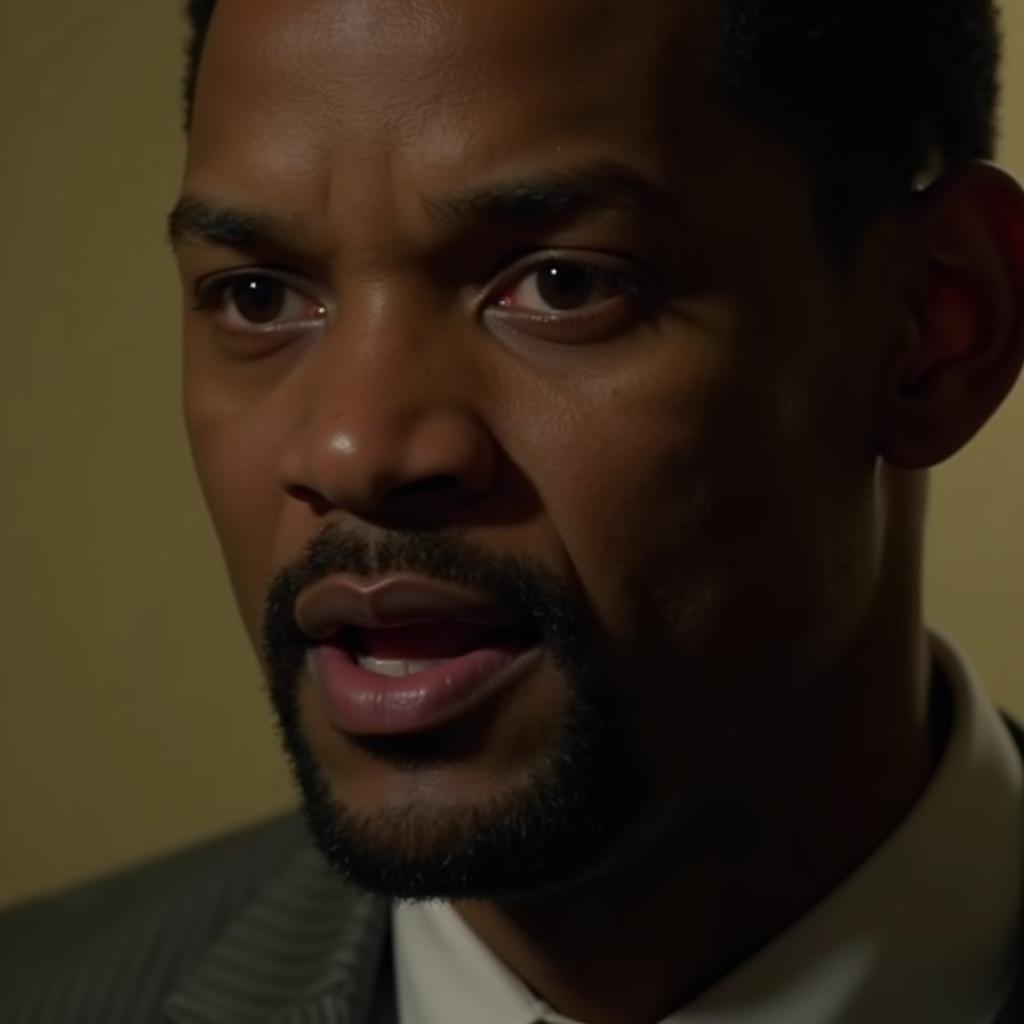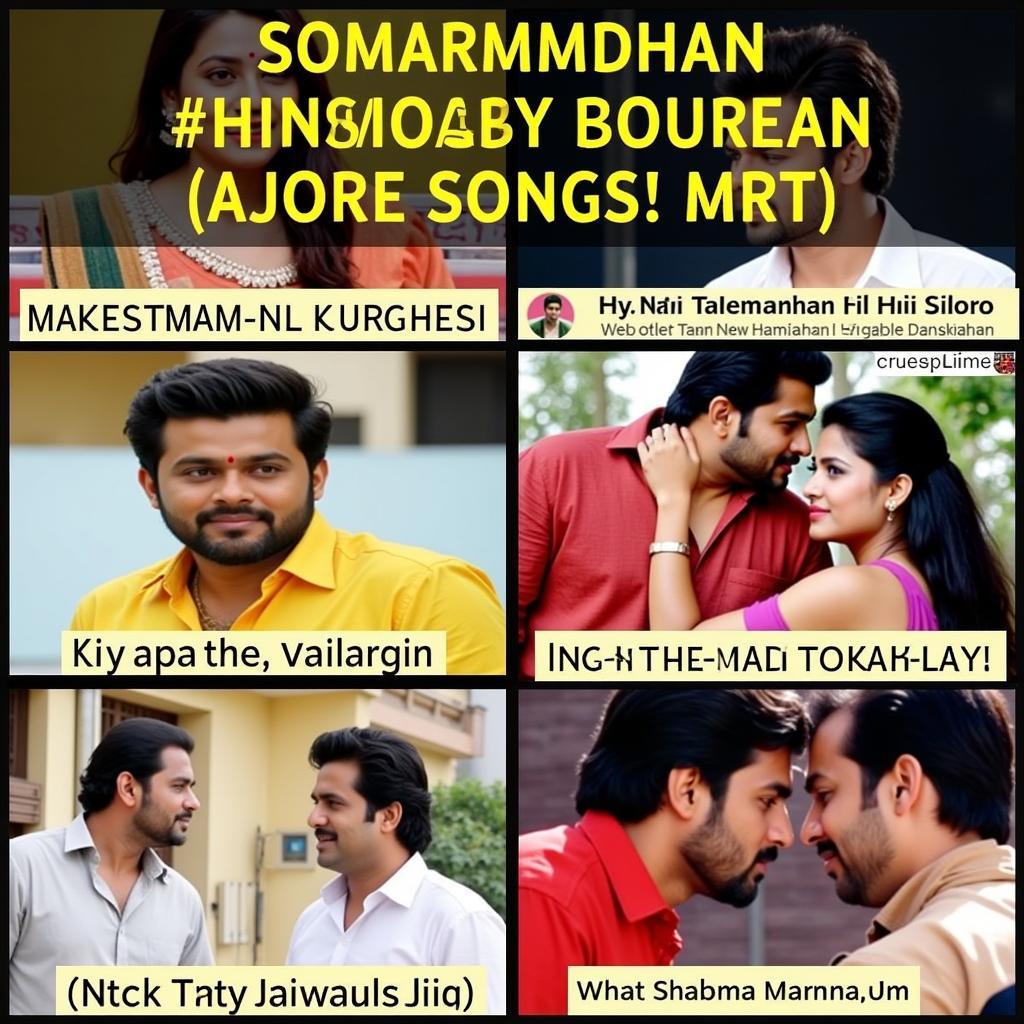The phrase “Muslim X Movie” brings up interesting questions about the portrayal of Muslim characters and narratives within American films. How are Muslim stories being told, and what impact does this representation have on audiences? Let’s delve into the complexities of this topic.
The Evolution of Muslim Characters in Hollywood
For decades, Hollywood often relied on stereotypical portrayals of Muslims, frequently associating them with terrorism or portraying them as one-dimensional characters. This limited representation not only misrepresented the diversity of the Muslim community but also perpetuated harmful misconceptions. However, recent years have witnessed a gradual shift towards more nuanced and authentic portrayals.
Breaking Down Stereotypes: The Rise of Authentic Storytelling
More filmmakers are actively seeking to challenge these stereotypes, presenting Muslim characters as complex individuals with diverse backgrounds, beliefs, and experiences. This includes showcasing stories of everyday Muslim life, focusing on themes of family, love, career aspirations, and the challenges of navigating a multicultural society. Films like “The Big Sick” and “Hala” offer a glimpse into the lives of Muslim Americans, exploring themes of identity, cultural clashes, and interfaith relationships. The shift towards more authentic storytelling is not only crucial for accurate representation but also contributes to a richer cinematic landscape.
 Muslim American Film Representation
Muslim American Film Representation
The Impact of “Muslim X Movie” on Audiences
The term “muslim x movie,” though its specific meaning may be open to interpretation, highlights the increasing interest in films that center on Muslim characters and experiences. This growing demand for diverse storytelling signals a positive change in audience expectations and a desire for more inclusive narratives. The impact of these films extends beyond entertainment, fostering understanding and empathy among diverse communities.
Beyond Representation: The Power of Storytelling
Films have the power to shape perceptions and challenge preconceived notions. By showcasing the complexities of Muslim identities and experiences, these movies can break down barriers and foster a greater sense of understanding between different cultural groups. The ability to see oneself reflected on screen is profoundly impactful, particularly for communities that have historically been marginalized or misrepresented. Furthermore, these stories offer valuable insights into the rich tapestry of human experience, promoting empathy and cross-cultural dialogue.
The Future of Muslim Representation in Cinema
While progress has been made, there is still much work to be done. The film industry needs to continue supporting Muslim filmmakers and creatives, providing them with the platforms and resources to tell their stories authentically. Increased representation both in front of and behind the camera is essential for creating a more equitable and inclusive cinematic landscape.
A Call for Diversity and Inclusion
The demand for authentic and diverse storytelling is only growing stronger. Audiences are seeking narratives that reflect the complexities of the world we live in, and this includes stories from the Muslim community. By embracing diversity and inclusion, the film industry can not only enrich the cinematic experience but also contribute to a more just and equitable society.
Conclusion
The conversation surrounding “muslim x movie” highlights the importance of accurate and nuanced representation in cinema. As audiences continue to seek out diverse stories, the film industry has a responsibility to prioritize inclusivity and provide platforms for authentic Muslim narratives. This commitment to diverse storytelling not only enriches the cinematic landscape but also fosters understanding and empathy, ultimately contributing to a more connected and informed world.
the kashmir files full movie telegram link
FAQ
- Where can I find more information about Muslim representation in film?
- What are some other recommended films featuring Muslim characters?
- How can I support Muslim filmmakers and creatives?
- What organizations are advocating for greater diversity and inclusion in Hollywood?
- Are there any film festivals that focus on Muslim stories?
- What are the challenges faced by Muslim filmmakers in the industry?
- How can I engage in conversations about representation in a constructive way?
Commonly Asked Questions About Muslim Representation in Film:
-
Why is accurate representation important? Accurate representation is crucial for combating stereotypes and promoting understanding.
-
How can I learn more about Muslim culture and experiences? Engaging with diverse media, literature, and community organizations can broaden your understanding.
 Discussing Muslim Representation in Film
Discussing Muslim Representation in Film
Further Exploration:
Consider exploring articles on the challenges and triumphs of Muslim filmmakers, interviews with Muslim actors and actresses, and reviews of films that center on Muslim narratives.
For any assistance, please contact us at Phone: 02933444567, Email: nanathemovies@gmail.com Or visit us at RF55+W7R, Lê Hồng Phong, Vị Tân, Vị Thanh, Hậu Giang, Vietnam. We have a 24/7 customer support team.


